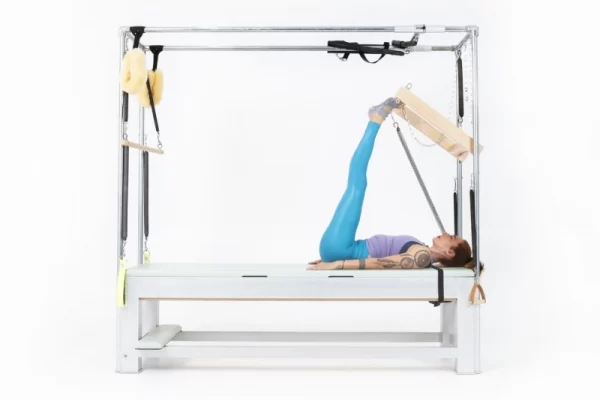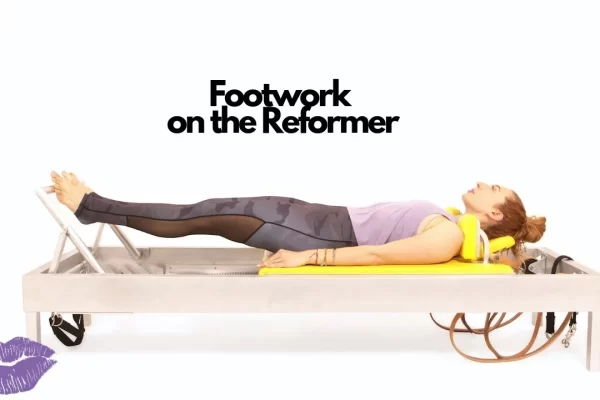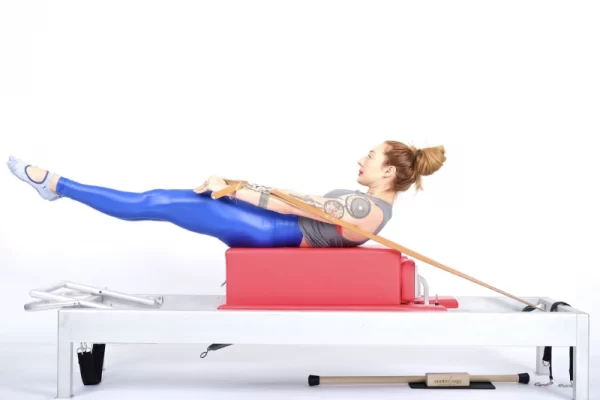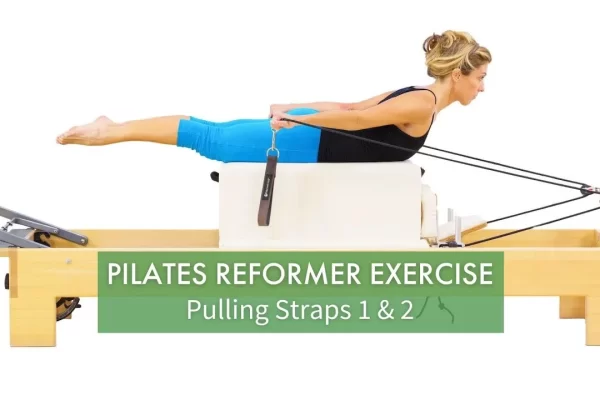Diet for Pilates: What to eat before and after a session
18/11/2025Did you know that a sensible diet can significantly enhance the effectiveness of your Pilates workouts? When combined with a scientific nutrition plan, Pilates not only increases your endurance but also helps your body recover quickly after each session. This article will help you develop a suitable diet for Pilates practitioners, improving your health, boosting your energy levels, and helping you achieve your fitness goals.
Why is diet important when practising Pilates?
Many people view Pilates as simply a gentle form of exercise, but in reality, it requires close coordination between breathing, muscle control and mental focus. The exercises demand the use of many deep muscle groups in the body, thereby expending a significant amount of energy. Without a proper diet, you may encounter problems such as:
- Feeling tired and dizzy during exercise.
- Reduced performance and loss of concentration.
- Slow recovery after exercise and prolonged muscle soreness.
- Increased risk of injury due to nutritional deficiencies.
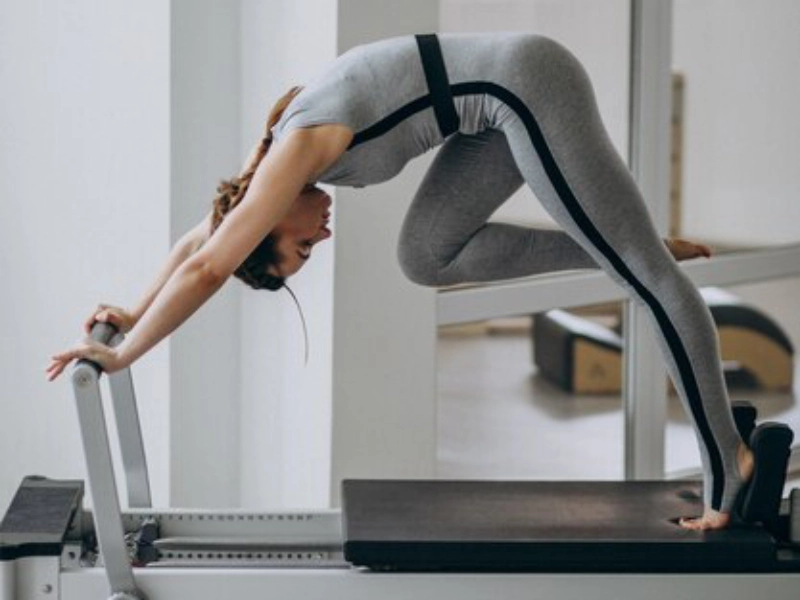
It is essential to establish a balanced diet to enhance the effectiveness of Pilates training.
Conversely, a balanced diet provides sufficient energy, facilitates faster recovery, boosts training efficiency, and supports sustainable body composition improvement.
Basic principles for developing a diet for Pilates practitioners
A proper diet not only provides the energy needed for the body to function flexibly but also helps with quick recovery after each session. Below are the basic principles for developing a diet for Pilates practitioners that you should master if you want to maintain your health and improve your physique in a sustainable way.
Ensure a balanced intake of all nutrient groups
A healthy diet is not simply about eating less or cutting calories. For Pilates practitioners, you need to ensure a balanced ratio of carbohydrates, protein, healthy fats, and vitamins.
- Complex carbohydrates such as brown rice, oats, and sweet potatoes provide stable energy for the body during exercise.
- Protein from lean meats, fish, eggs, and legumes supports muscle building and recovery.
- Healthy fats from olive oil, nuts, avocados, etc. help maintain endocrine function and vitamin absorption.
- Vitamins and minerals, particularly vitamins D, B, C, E, calcium, magnesium, and iron, support muscle function, boost immunity, regulate nerves, and help the body recover faster after exercise. They can be found in vegetables, fruits, meat, fish, eggs, and dairy.
Eat at the right time
Not only is it important to eat the right foods, but eating at the right time is also crucial for effectiveness. Eating before a session provides you with energy, while eating after a session promotes recovery.
Drink enough water
Pilates may not make you sweat as much as running or weight training, but it still causes dehydration through breathing and movement. Therefore, adequate hydration before, during, and after your workout is essential to maintain performance and support physiological functions in the body.
Note that you should drink filtered water when exercising, avoiding energy drinks, coffee, fruit juices and sports drinks as they contain a lot of sugar.
What to eat before a workout – Diet for Pilates practitioners
Your pre-workout meal directly determines your energy levels during the session. If you eat too much, you may feel sluggish and bloated. If you don’t eat anything, you may lack energy and feel dizzy when performing balance-requiring movements.
You should eat approximately 1-2 hours before your workout. If you need to replenish energy quickly, a light meal 30 minutes before your workout can also help you quickly regain energy.
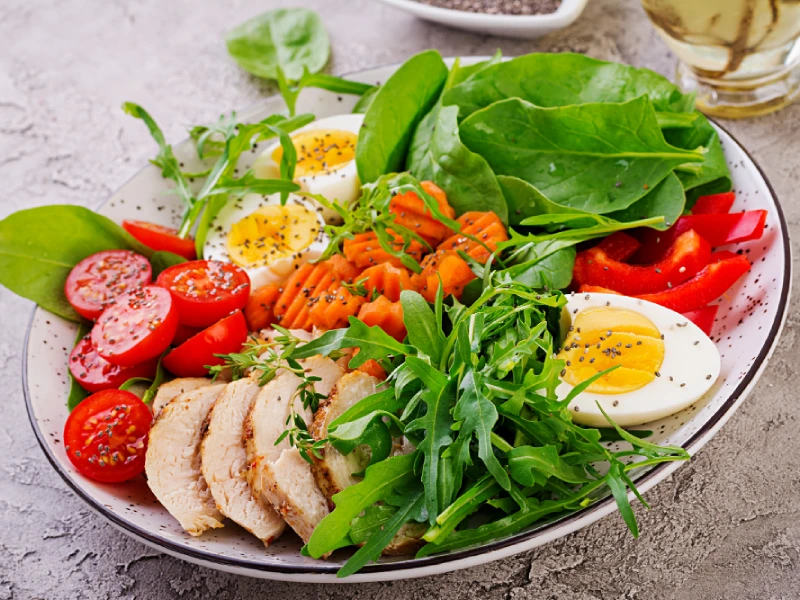
You should have a light snack before your Pilates session.
Fruit
If you practise Pilates early in the morning, fruit is the perfect choice. Types such as bananas, pomegranates, oranges, berries, nuts, etc. provide energy, help you avoid fatigue and replenish essential vitamins and minerals. Each type of fruit has its own benefits: bananas are rich in carbohydrates and potassium, supporting muscles and nerves; pomegranates contain antioxidants, supporting anti-inflammatory properties. Varying the types of fruit in your daily diet helps prevent boredom and ensures you get all the nutrients you need.
Protein-rich snacks
Protein is very important for people who exercise. Pilates can cause protein loss, so you need to store protein to balance your nutrition. Foods that contain protein but are low in sugar and easy to digest, such as boiled eggs, chicken breast, fish, grains, raw nuts, etc., are very suitable. You can have protein bars made from nuts, fruit protein drinks, or fruit with Greek yoghurt before each session. These are convenient, quick options that provide sufficient energy.
If you practise Pilates in the afternoon, have a light snack 1.5-2 hours beforehand to allow time for digestion. Some suggested options include salad, grilled fish with vegetables, eggs, protein-rich soup, etc.
Post-workout meal – Diet for Pilates practitioners
After a Pilates session, the body needs immediate nutritional replenishment. You need to restore glycogen and rebuild protein to repair muscle tissue. This also prevents feelings of fatigue and hunger pangs after exercise.
Avoid foods high in sugar. About 30 minutes after your workout, you can replenish your nutrients with a smoothie or protein-rich drink. Smoothies can be made with a variety of foods according to your preference. If you don’t like smoothies, you can choose other foods, ensuring they are rich in protein, carbohydrates and healthy fats.
Some suggested meals after your workout are:
- Salmon with sweet potatoes
- Tuna sandwich (use wholemeal bread)
- Toast with peanut butter or almond butter
- Skimmed milk with low-sugar cereal
- Grilled chicken breast with brown rice and steamed greens.
Ensure these meals help your body recover quickly and maintain energy for subsequent activities.
Points to note when choosing meals for Pilates practitioners
In addition to preparing light meals before and after your Pilates session, you should note the following points:
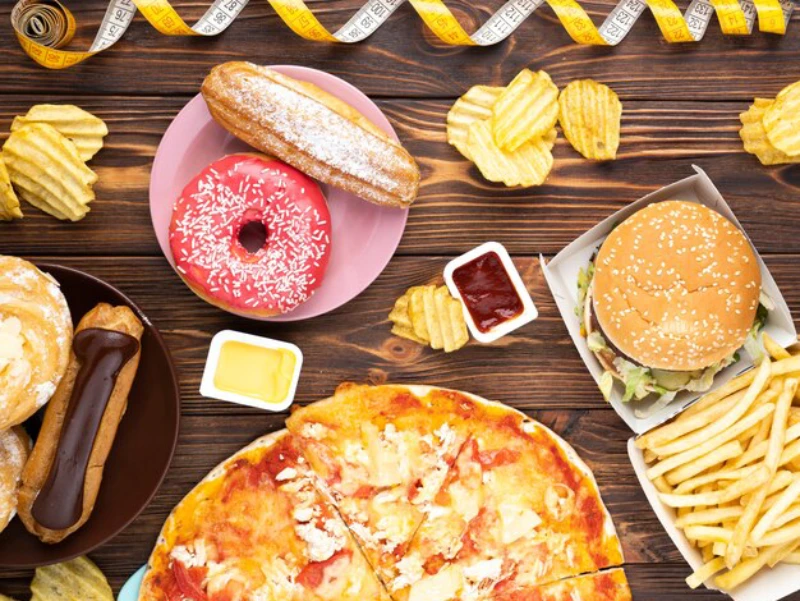
Limit fast food and greasy foods.
- Do not eat too much or too little before your session: Many people worry about feeling bloated and skip the pre-workout meal altogether. Conversely, some eat too much, leaving the body unable to digest properly. Both scenarios significantly reduce the effectiveness of the session.
- Limit fried and stir-fried dishes: Pilates practitioners only need to consume approximately 1200-1500 calories per day. Limit fatty fried and stir-fried dishes and prioritise green vegetables and mixed vegetables in the evening.
- Diversify your menu: Combine healthy foods to increase palatability. Ingredients such as lean meat, eggs, fish, grains, and green vegetables like celery, carrots, and broccoli are very suitable for Pilates practitioners.
Do you need to diet when practising Pilates?
Nutrition plays an important role in optimising the effectiveness of Pilates training. Combining a reasonable training schedule with a balanced diet helps improve performance and ensure overall health.
A strict diet is not necessary for Pilates. Choosing healthy foods to prepare your body before a session and replenish energy afterwards will help you feel refreshed and ready for each workout. A scientific diet depends on your specific health goals.
A sensible diet for Pilates practitioners is a solid foundation that helps you go further in your Pilates journey. Ensure that each of your meals is balanced and nutritious so that your body is always ready for the challenges of training. With the perfect combination of Pilates and a scientific diet, you will feel positive changes in both your health and spirit.


